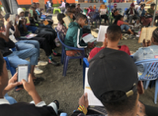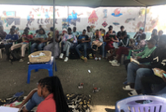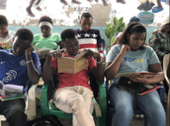World Heritage for Sustainable Development in Africa
Le Patrimoine mondial pour un développement durable en Afrique
Faster downloadPublished Year: 2019

Language: multiple
Details: Categories: ["Political Science / International Relations / General", "Political Science / Intergovernmental Organizations", "Political Science / World / General"]
Summary: This collective work addresses the challenges faced by the African continent in the preservation of its World Heritage, whilst taking into account the rapid development of the region. The twenty-eight articles in this publication cite examples drawn from the experience of heritage professionals both in sub-Saharan Africa and in other parts of the world, such as Azerbaijan, China, Colombia and Pakistan. While focusing on the results of heritage management and conservation in Africa achieved through traditional knowledge and practices, as well as the dynamic nature of African heritage, this publication provides recommendations to ensure the safeguarding of African cultural and natural heritage. The Ngorongoro Declaration adopted at the Arusha conference underlines the importance of preserving African heritage for the construction of African identity and dignity. It also highlights the role of heritage as a driving force for sustainable development that can bring socio-economic advantages and benefits for environmental protection, sustainable urbanization, social cohesion and peace at the regional level. This declaration is a source of inspiration for finding sustainable solutions for poverty reduction in Africa through the promotion of: • Capacity building for site managers and other African heritage professionals, as well as the integration of local communities into the management of World Heritage sites for the sustainable management of sites on the World Heritage List; • Job creation for young people and women through the organization of training courses relating to heritage professions, in particular to prevent the exodus of populations to large cities or foreign countries; • Sustainable use of resources, particularly those from World Heritage sites; • Improved balance between development and conservation, as the safeguarding of heritage properties can lead to the organization of activities with economic benefits for local communities; • Establishing new partnership models, particularly with site managers and civil society, to enable the greater involvement of local communities with heritage management.








